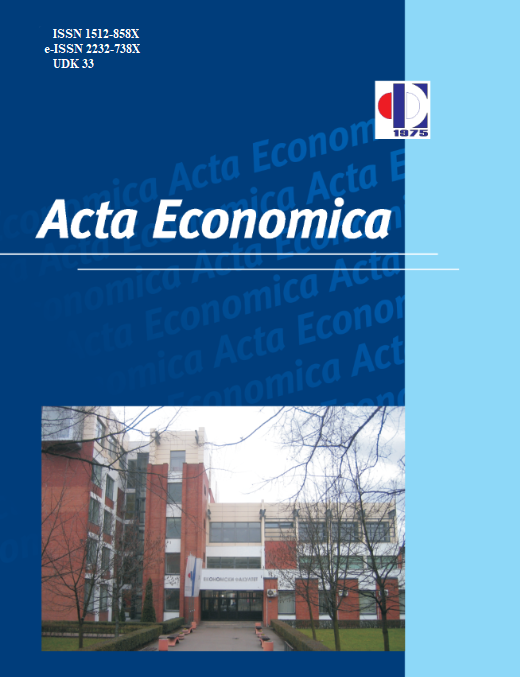Реиндустријализација – претпоставке и оријентири // Reindustrialization – Assumptions and Landmarks
DOI:
https://doi.org/10.7251/ACE1522169TAbstract
Резиме: Развој индустрија као опште стратегије развоја више није могућ на класичан начин? Реиндустријализација као концепт развоја са моделским приступом скоро да изневерава. Неки мисле да је индустријализација најперспективнији начин за развој неразвијених земаља. То данас, међутим, противуречи неким елементима стратегије развоја окренутим ка корпорацијским економијама у којима предузећа имају елемент дискреције по питању циљева које постављају. У раду постављамо питање: шта је задатак оживљавања економије и настојимо да идентификујемо дилеме и да процесуирамо одговоре. Све је везано за радикалне промене и технолошке пробоје. Промена је у управно-пропорционалном односу са степеном сложености производа. Посредством производа предузећа се уклапају у своја променљива окружења. Индустрија индустријализује скоро све области људске активности. Она је база научно-техничког прогреса. Степен њене снаге одређује ниво концентрације кадра, капацитета и средстава, што је свето тројство економске науке и привредне праксе. Зашта да се одлучи практичар? Одговор је у макроанализи економске структуре и моћи са оријентирима на дужу временску пројекцију. Евидентно је производно заостајање и развој доминантно услужне привреде кроз деиндустријализацију, што противуречи пожељним стратегијама развоја земаља у транзицији. Производни сектор је жртва, па се опстанак чини главном стратегијом. Кључне речи: економија, систем, индустријализација, технички прогрес, инвестиције, развој.
Summary: Development of the industry as a general development strategy is no longer possible in a classical way? Reindustrialization as a concept of development with model approach almost betrays. Some think that the industrialization is the most promising way for the development of underdeveloped countries. However, today it contradicts some elements of development strategy turned toward the corporate economies in which companies have the element of discretion with regard to the goals they set. In this paper we ask the question: what is the task of reviving the economy and we are trying to identify the dilemmas and to process responses. Everything is related to radical changes and technological breakthroughs. The change is in directly proportional relationship to the degree of complexity of the product. Through their products the companies fi t into their changeable environment. The industry industrializes almost all areas of human activity. It is the basis of scientific and technical progress. The degree of its strength determines the level of concentration of personnel, capacities and resources, which is the holy trinity of economic science and economic practice. What the practitioner should decide? The answer is in the macro analysis of the economic structure and power with the landmarks for a long-term projection. The lag of production and development of predominantly service economy are evident through deindustrialization, which contradicts desirable development strategies of countries in transition. The manufacturing sector is the victim, so the survival seems to be the main strategy.

